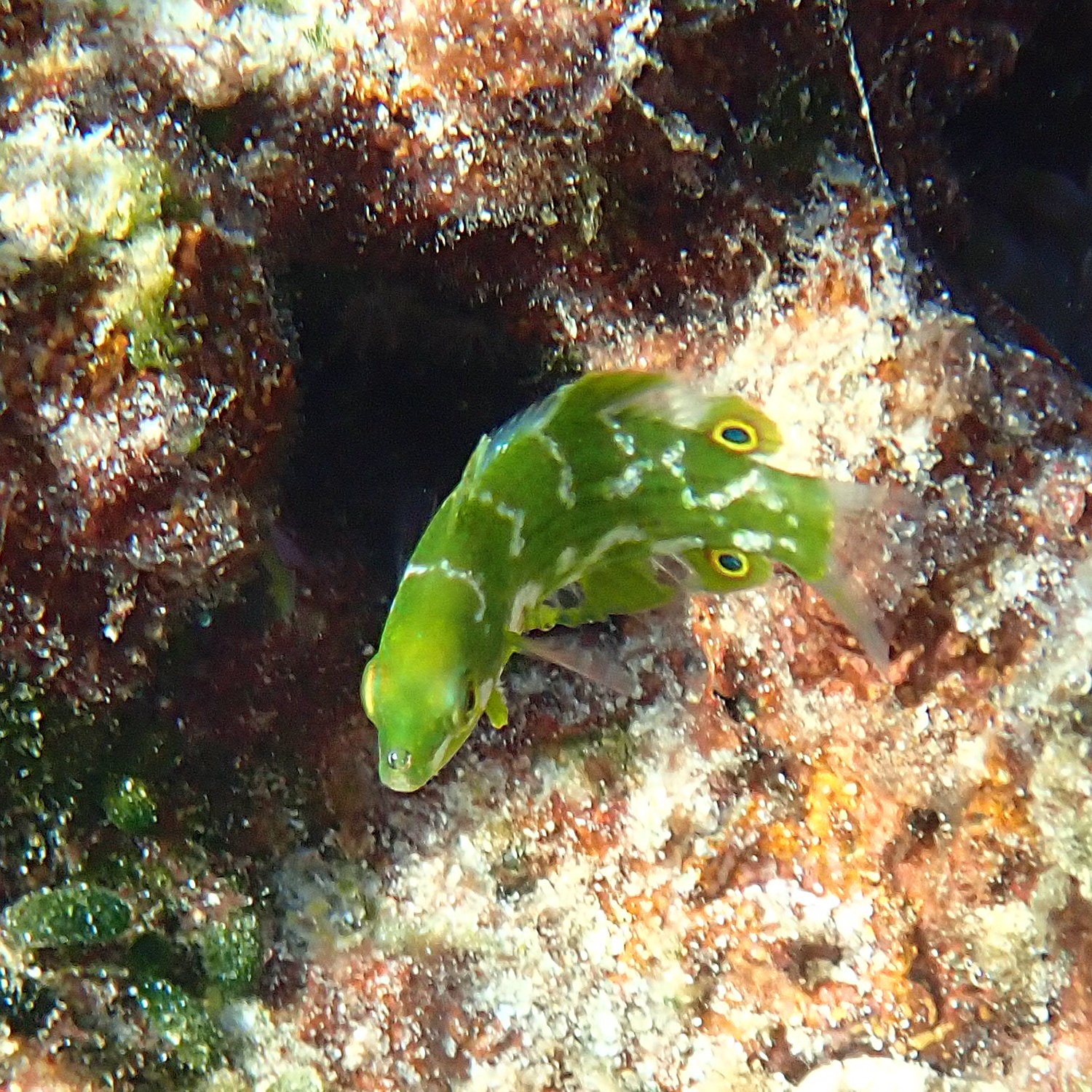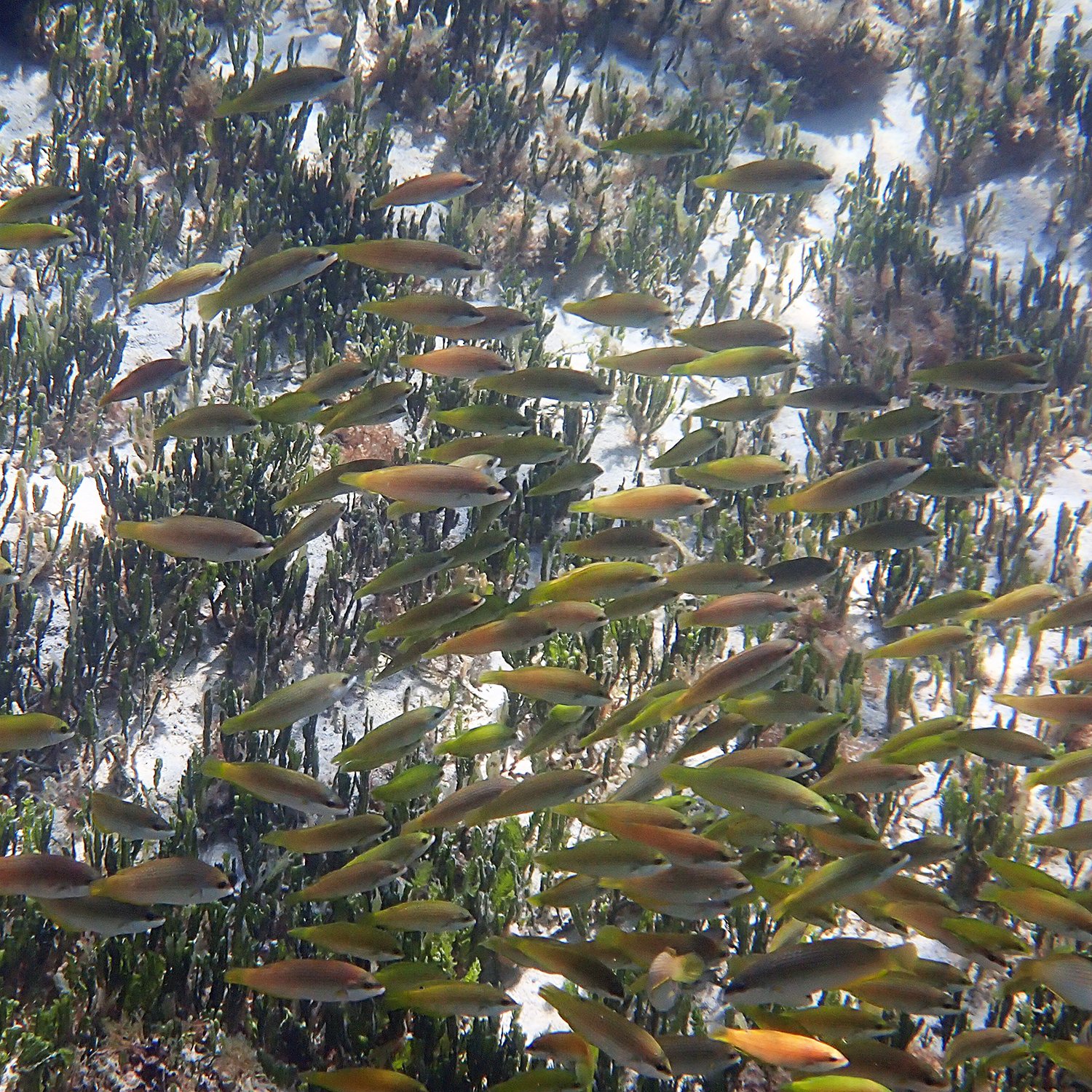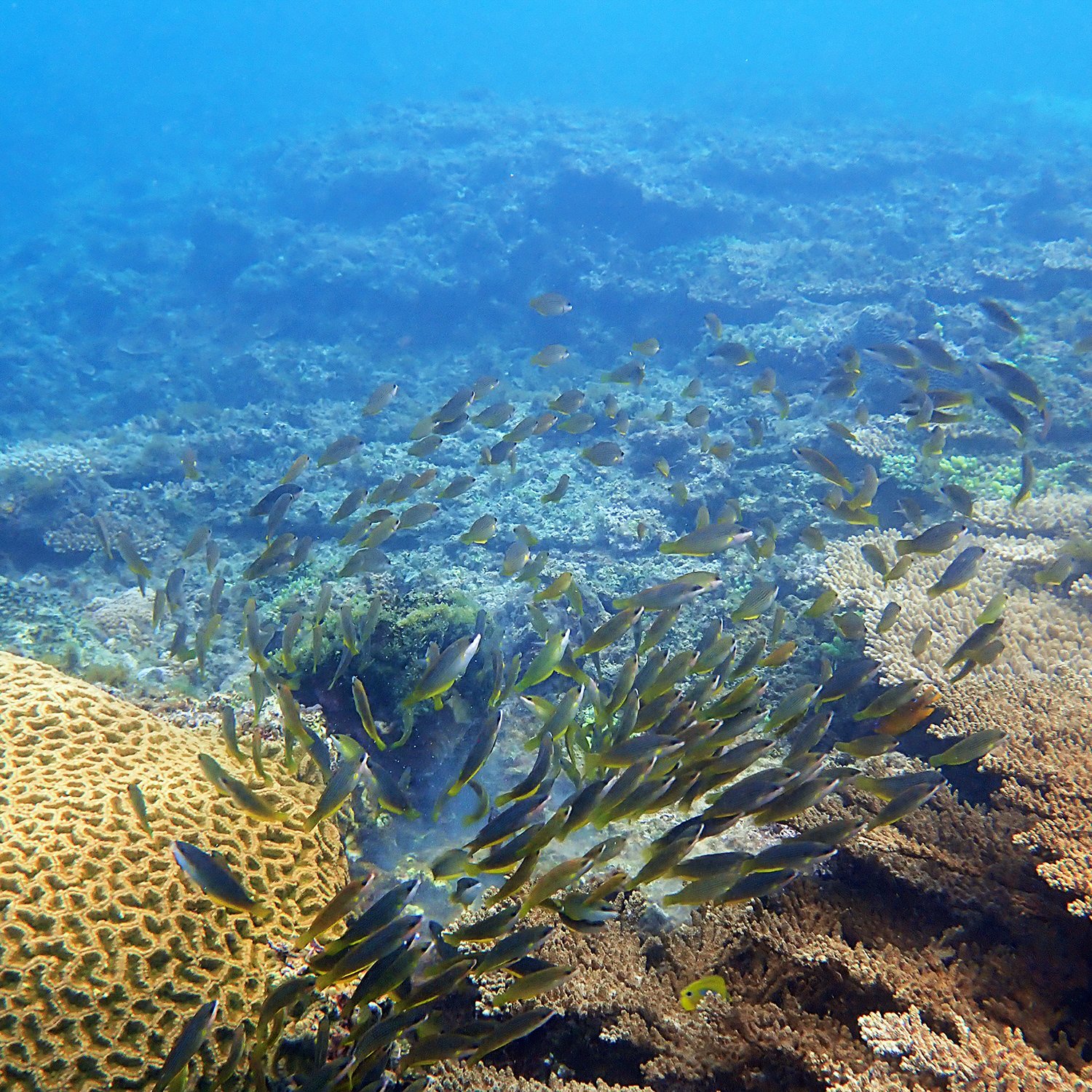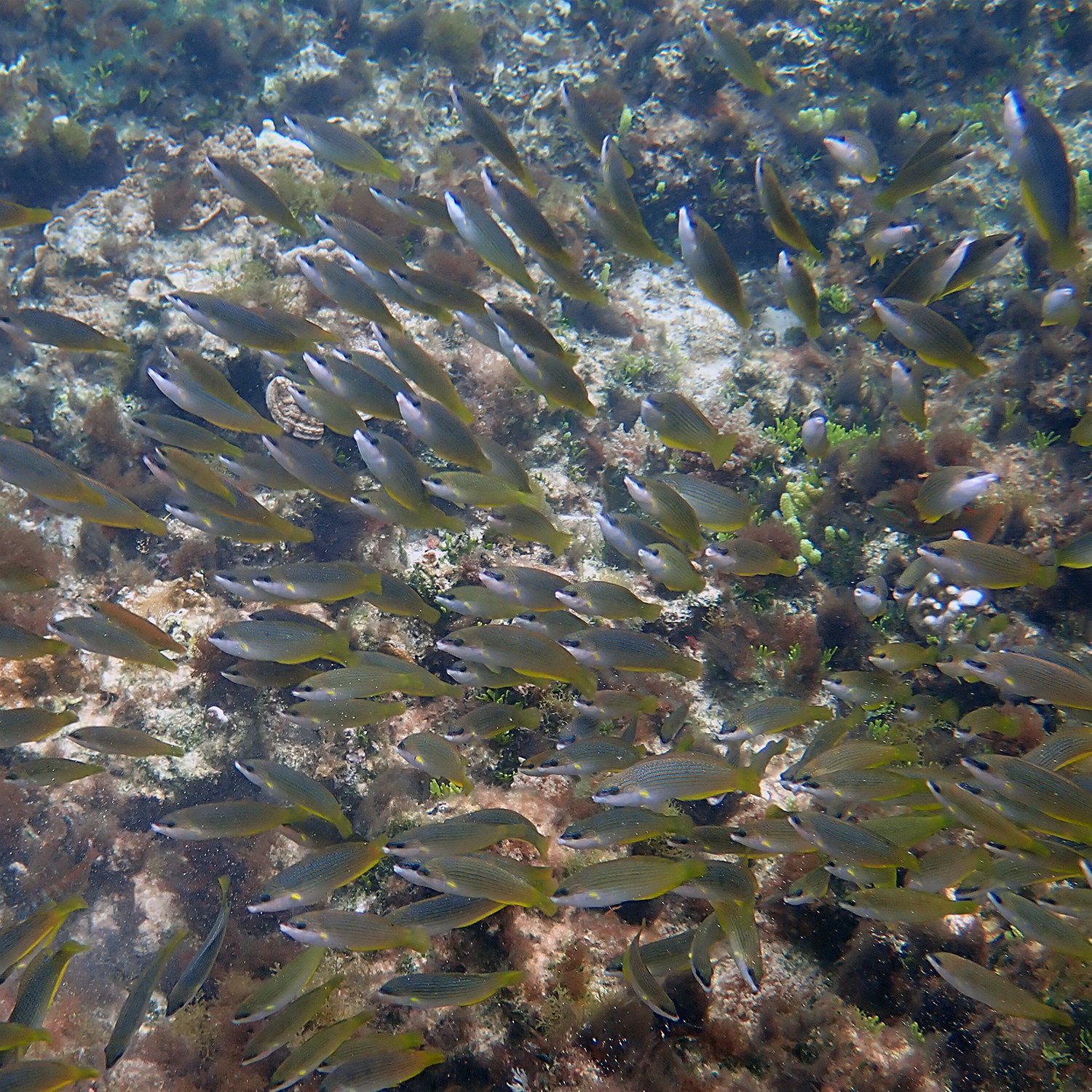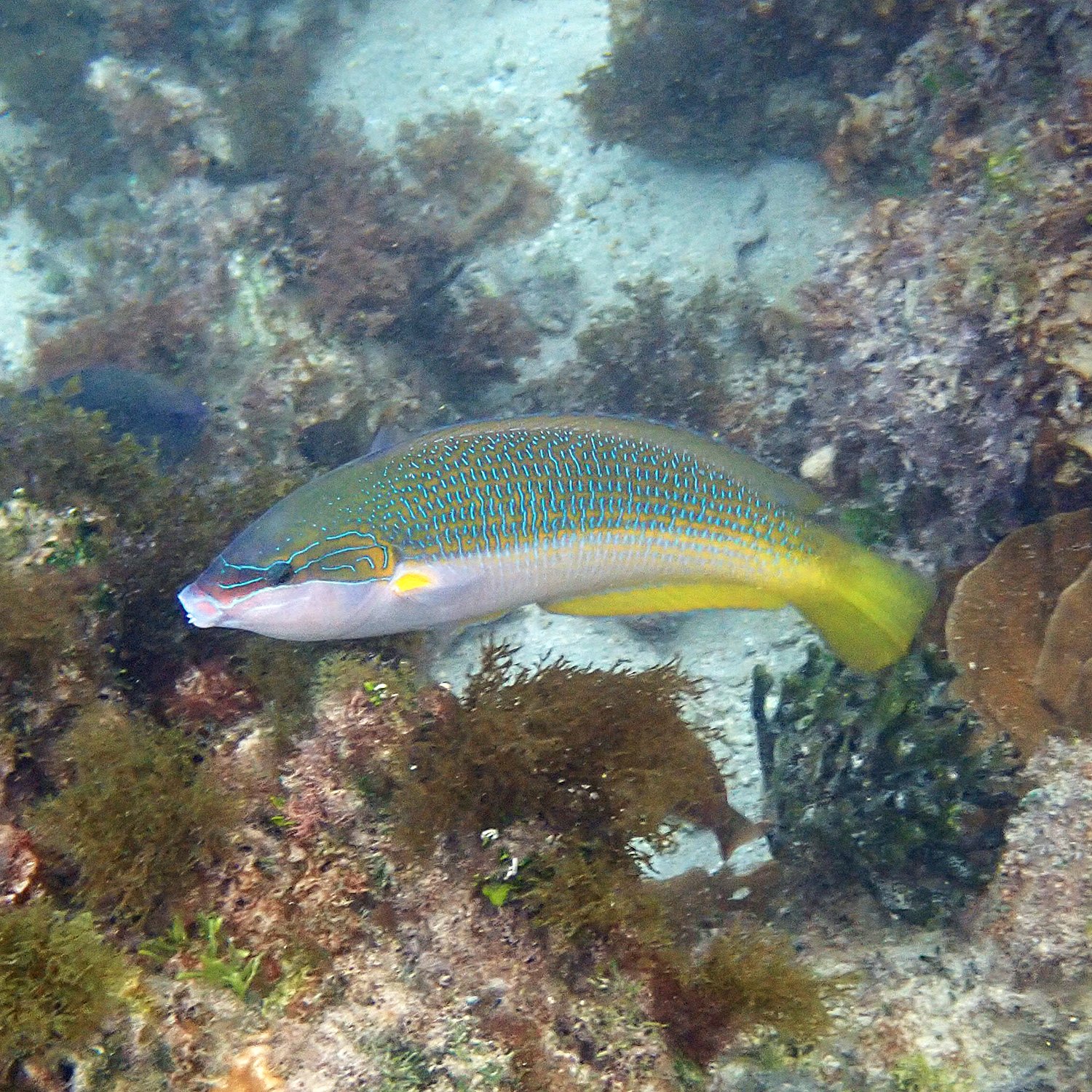DAY 15 – MARCH FOCUS ON NORFOLK ISLAND’S REEF
Juvenile elegant wrasse with its distinctive eye markings on its dorsal and anal fins
It’s always fascinating to see how fish change in appearance as they mature. Today’s blog post features the elegant wrasse, Anampses elegans. The photographs, below, follow the different stages of its lifecycle.
Not only do they change how they look, they also change how they socialise and move about the reef. As juveniles they move in groups of up to 80 females, but as adult females they become loners. In the absence of a male, a dominant female will change sex to become the terminal phase male – terminal because there’s no going back to being a female. The males, which can grow up to about 30 cm in length, are territorial and will move from one group of females to another.
This wrasse is a subtropical and warm-temperate species that live in lagoons, spread right across the Pacific from the coast of New South Wales and Queensland, as far east as Easter Island. While they are widespread they are not necessarily abundant hence in New South Wales, for example, they are a protected species. Here on Norfolk Island, their numbers diminished over the last nine months or so, but in recent weeks they have been on the comeback. A great sign.
The lime-green juvenile has distinctive blue and yellow eye markings on its dorsal and anal fins. Its colour changes to a silvery light brown underside to a slightly darker upper body with tiny blue spots. As juveniles, which are thought to be all female, they travel in groups across the reef, voraciously descending onto corals en masse looking for small crustaceans and molluscs.
The New South Wales Department of Primary Industries provides a very useful fact sheet, which I referred to for this post. You can also read about them on the Fishes of Australia website.

